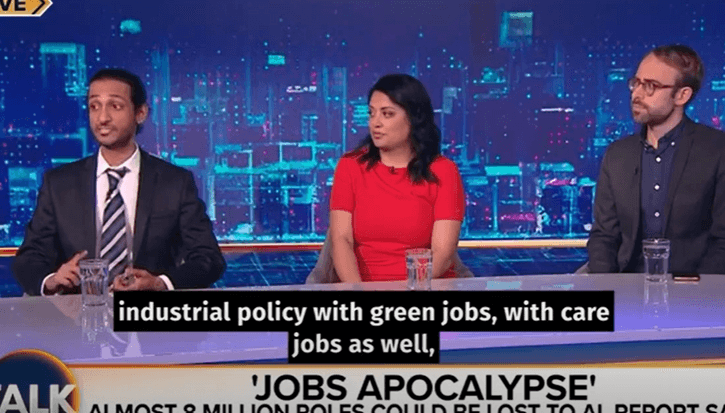Editorial: In contingency lies opportunity
Article
Ever since the chancellor George Osborne pulled off the coup of recruiting the first foreigner to run the Bank of England, expectations of the new governor, Mark Carney, have been running sky-high. In part, this reaction is a testimony to his record. Carney is widely credited with having steered the Canadian economy through the global downturn without experiencing a severe recession, let alone a full-blown banking crisis. It is also a reflection of his intellectual strengths and his willingness to engage with relatively unorthodox policy ideas.
But it is also born of desperation. The British economy has crawled along the floor ever since its modest recovery was snuffed out in 2010. Tied to fiscal self-abnegation, and looking hopelessly across the English channel to a eurozone stuck in the rut of even-more-severe austerity, the chancellor has turned in two directions in recent months for economic salvation: first, to various off-balance-sheet wheezes to pump-prime the economy, and second, to monetary policy. But the wheezes have so far had a pitiful effect and his latest ideas, particularly the mortgage guarantee scheme, have been criticised as risking re-inflating a housing bubble. Thus, the onus is placed on monetary policy. Enter the new governor.
For all the excited chatter, however, most serious commentators - and certainly Carney himself - know full well that even the most radical central banker does not possess superhuman powers. In recent years, Bernanke and his generation may have on occasion played the heroic part. But monetary powers alone cannot rescue stagnant economies mired in the slow deleveraging of gigantic credit bubbles. The most radical turn in economic policy in 2013 has been taken in Japan, where coordinated reflation is now underway, driven by strategic state direction of expansionary fiscal and monetary policies. Each key actor - the finance ministry, central bank and business community - has its part to play. It has taken the authorities in Japan many years to come to the realisation that monetary policy alone cannot stave off deflation and bring the economy back to sustained growth. Other countries, including the UK, need to learn that lesson quicker.
If he is astute, Carney will therefore cultivate alliances and seek the creation of policy tools that will permit his monetary activism the greatest chance of success. Many of these will be at the interface of fiscal and monetary policy, such as badly needed reforms to the various government- or Bank-backed business and mortgage lending schemes. Others may depend on the careful balancing of the Bank's financial regulation and monetary policy powers, particularly to ensure that credit transmission mechanisms can work to get lending flowing to the real economy.
More radical options still are proffered to Mark Carney by some of the world's leading economists in this edition of Juncture. They range from support for a further devaluation of sterling, to injunctions to stave off future asset bubbles, to efforts to lean harder on the boundary fence between monetary and fiscal policy. In each 'memo to Mr Carney', growth and job creation loom large, which is hardly surprising, given the snail's pace of the recovery and the enormous un- and underemployment of labour power in the UK. But there are warnings too: in our interview with Gillian Tett of the Financial Times - one of the few people in the UK who saw the financial crisis coming - the risks of a future shock to markets soaked with liquidity and sovereigns encumbered with debts are starkly posed.
Mainstream political discourse on these central economic policy issues has remained limited to the point of vanishing in the UK, where arguments course over the finer points of fiscal policy and little else. As Tett points out, the clash of principle is loudest on European questions, not the role of the Bank of England or even the size and role of the state, as it is in the US. This failure to engage with wider questions of economic policy is particularly puzzling from the Labour party, for whom debates about private debt deleveraging, the role of interest rate expectations, and the line between monetary and fiscal policy might serve to open up new intellectual and political space - even if only among elite opinion-formers.
For their part, however, policymakers might be forgiven for fixating on the recent Ukip surge. As John Curtice lays out in his regular column, the performance of Ukip in recent local elections was remarkable and has ramifications for all parties, not just the Conservatives, their more natural bedfellows. Hitherto, the UK has escaped the rise of a radical Eurosceptic or right-wing populism. In the rest of the EU, austerity has produced ferocious populist responses and the decimation of established political blocs (and even a populism of prosperity, in the short-lived northern European success of the Pirate parties). In comparison, Ukip's brand of populism appears somewhat muted, perhaps even peculiarly English, but its success is an echo of developments on the continent, and one that has the potential to shake up the British political system.
This new presence, however, has not been matched by a radical left populism. In his essay, historian Robert Gildea documents the hopes and aspirations of the '68 generation, and asks why no equivalent radicalism exists today. Debt and economic uncertainty play their part: there is no longer the freedom from material needs that enables a youthful radicalism to take flight, as there was in 1968. Potential class allies have left the stage of history too. As Jon Lawrence records in his piece - published on the 50th anniversary of EP Thompson's classic, The Making of the English Working Class - there is no longer any mileage in the class politics of old. Nearby, surveying the wreckage of post-crash Ireland, Roy Foster finds sources of energy and radical critique in culture and artistic expression, but not politics.
So if there is to be a 'new politics for working people', as Lawrence puts it, it will have to be built on different foundations. Neither the 'great moderation' consensus of the world before the financial crisis, with its promise of easy credit, nor the struggles of the older class politics that preceded it is an appropriate model now. Instead, it is likely to be crafted in the coalitions and compromises of the kind set out by Nick Pecorelli in his essay on the values cleavages in the British electorate, mixing cosmopolitan and conservative sentiment, the desire to preserve as well as reform.
Whether enduring political strategies, and not just short-lived tactical victories, can be based on such foundations remains to be seen. But the lesson from economists, historians and political thinkers in this edition of Juncture is that contingency is an opportunity, as much as a threat, and that the present moment offers wide scope for progressive political change, even if the terrain is treacherous.
Related items

Forging ahead: Deciding the direction of IPPR's Migration Policy Unit
In our last blog post for the Migration Policy Unit we shared our new way of working as we endeavour to be inclusive and transparent in our policymaking process. In this blog we set out what our first and flagship project is for the policy…
Who gets a good deal? Revealing public attitudes to transport in Great Britain
Transport isn’t working. That’s the message from the British public. This is especially true if you’re on a low income, disabled or living in the countryside. The cost of living crisis has exposed the shortcomings of our transport system,…
Bhargav Srinivasa Desikan on TalkTV discussing AI
IPPR's Bhargav Srinivasa Desikan on TalkTV discussing his new report on the impact of generative AI on the UK labour market.